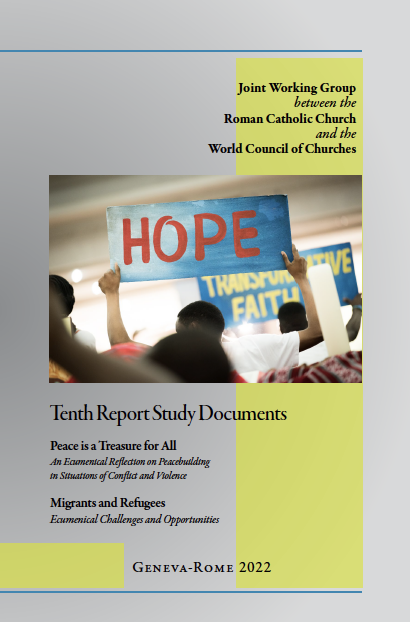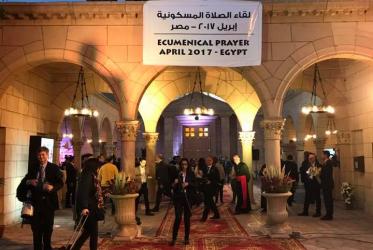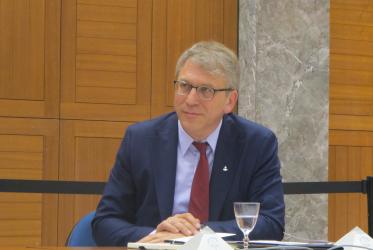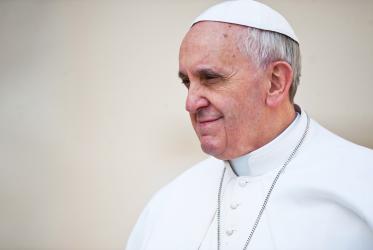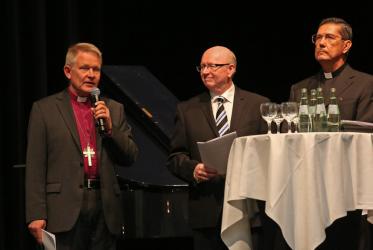Displaying 1 - 16 of 16
19 August 2022
“Gathering in Grief” mourns Rev. Phumzile Mabizela
07 July 2021
Roman Catholic-WCC group focuses on peace-building, migration
19 September 2017
What does ‘prudence’ mean for dialogue and peace-building?
16 November 2016
In Ghana, women bring open minds, honest words
05 July 2016
Catholic-WCC group pursues new mandate
13 April 2016
“We have to build new bridges”
28 August 2014
